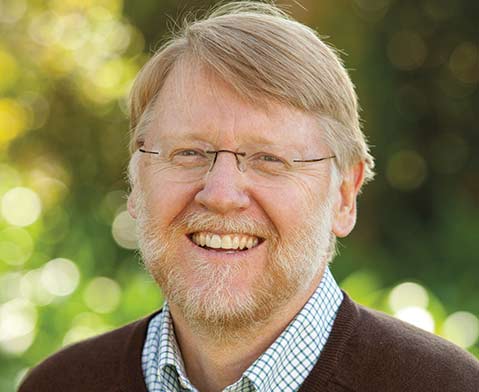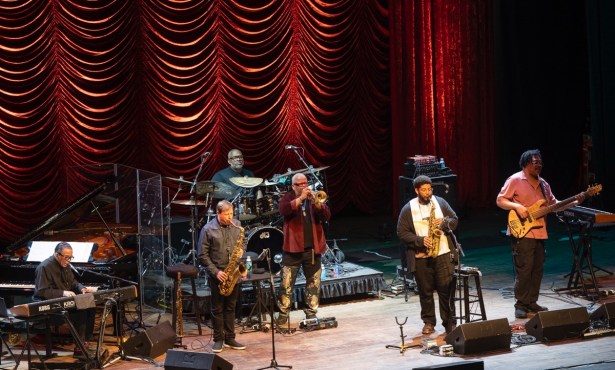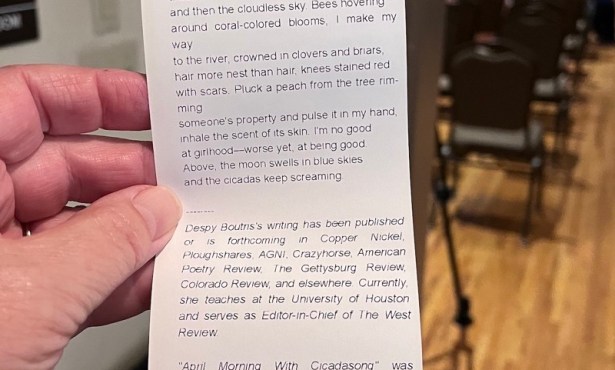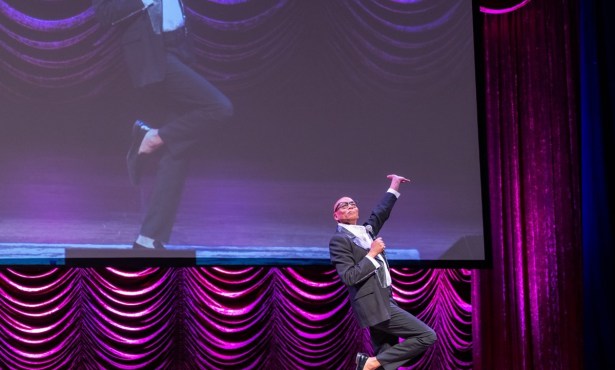Poet Paul Willis Pens New Book
‘Getting to Gardisky Lake’ is Westmont Professor’s Fourth Book of Poetry

Paul Willis is a professor of English at Westmont College and a former poet laureate of Santa Barbara. Getting to Gardisky Lake is his fourth book of poems. I recently spoke to Willis about his inspiration for his poems, writing in other voices, and religion. (More information about Willis can be found at pauljwillis.com.)
In your new book, you seem to be experimenting with other people’s voices. There’s an Idaho redneck, a rich guy with a very expensive swimming pool, a man on a flight out of Johannesburg. Donald Trump even makes an appearance! I’ve found that writing the occasional persona poem keeps me loose and helps me try on different kinds of syntax. Sometimes I don’t set out to write a persona poem but gradually realize I am channeling someone else’s voice. Then I try to figure out whose. The Donald Trump poem is like that. Though the voice is not exactly his, the sentiments most certainly are.
Other times I realize I am in the presence of someone who has a unique way of putting things, and then the challenge is trying to imitate that voice. The Idaho redneck, as you call him, was married to my mother-in-law. He was a neighbor and hunting guide for Hemingway.
So these are people you meet or read about? Not always. Other times I realize, to my horror, that the voice is mine — or, I should say, one of mine. My brain is pretty much a committee, a jostling assortment of voices that sometimes issues a minority report. The poem about the arrogant, self-satisfied center of an oak tree is probably about yours truly.
The natural world is still crucial to your poetic project. Can you talk a little about why hiking in the wilderness has given you so many poems? I wish I knew why nature goes so deep for me. It just does. For as long as I can remember, I have enjoyed wandering in the mountains — sometimes leading groups, sometimes exploring with friends, sometimes just noodling around by myself.
Any places in particular? The Sierra Nevada and the Cascades are places I keep returning to. They just give and give. I grew up near the Three Sisters in Oregon and later on worked as a guide in the north part of Yosemite. Lately, my wife and I have been spending time in and around Mineral King, in the southern part of Sequoia National Park.
Are you drawn to any “nature poets” as mentors? [William] Wordsworth was important to me when I first started writing poems. In fact, I date my beginnings as a poet to an eight-day solo backpack trip in the San Rafael Wilderness behind Santa Barbara, during which I read his long autobiographical poem “The Prelude.” That was almost 30 years ago. Gary Snyder and Mary Oliver, in their own ways, have been pretty foundational, too.
You teach at Westmont College, and you — and your poems — are clearly very spiritual. But I never think of you as evangelical, at least in the sense of “zealous in advocating for the Christian faith.” Where do poetry and faith meet for you? I don’t know that I ever set out to write nature poetry. I don’t know that I ever set out to write spiritual poetry, either. But, like John Muir, I have been soaked in scripture since I was a small child. Unlike John Muir, I experienced more love than abuse from those who bathed me in that scripture. (In fact, if there is anyone I would like to evangelize to, I think it would be John Muir.) But you are right; I’m not much of a proselytizer. Evangelicals like to talk about having Jesus in their hearts. If Jesus really is in my heart, he might peek out in some poems, but I don’t feel the need to preach



